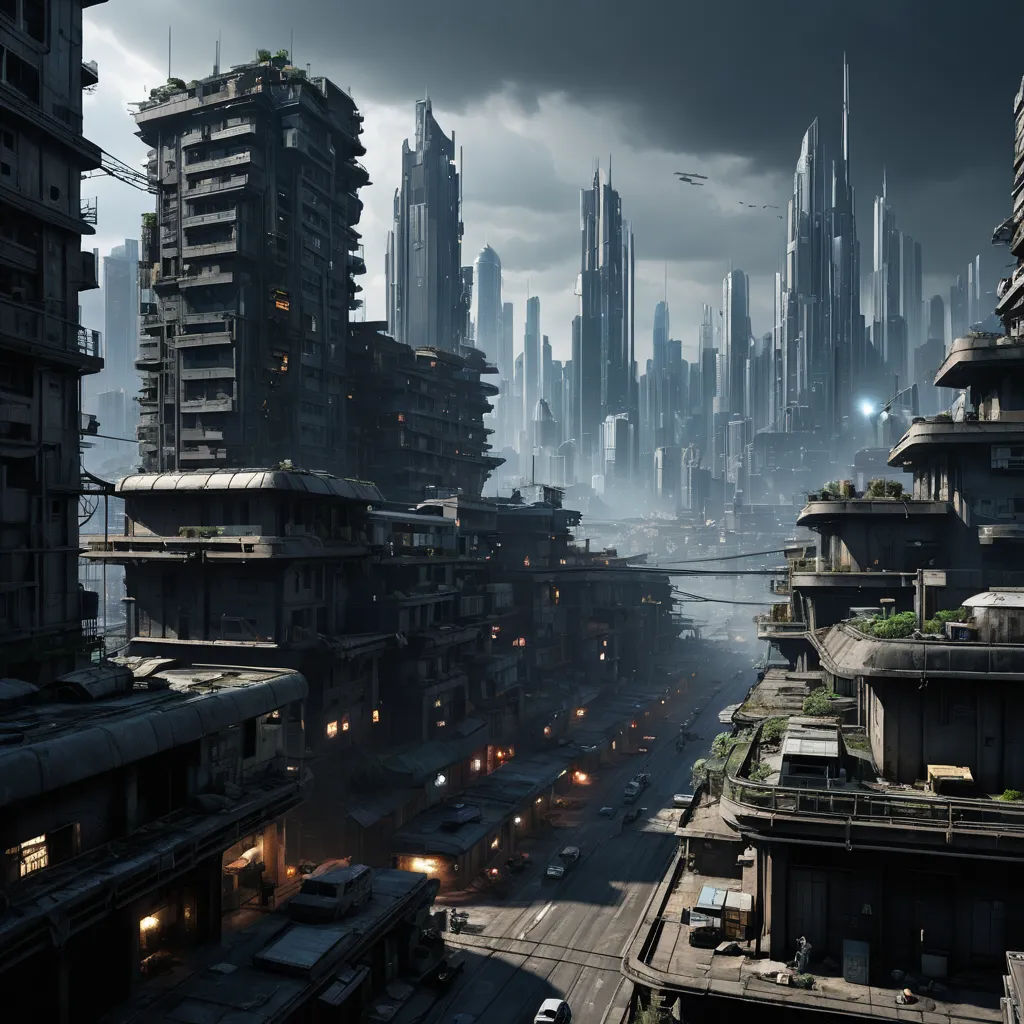
Shadows of Ambition
By kamineubauer00

27 Feb, 2024

Veridian City was a study in contrasts; Lila's home in the slums was a world away from the high-rise palaces of the Directorate.

Lila's days were filled with hardship, yet she held a spark of defiance in her heart. She dreamt of a better world, free from the corruption that plagued her city.

The Directorate was an ominous entity looming over Veridian City, their greed and corruption a stark contrast to the poverty in the slums.

Lila decided to venture into the heart of this corruption, intending to bring about change. She knew the danger, but she was driven by her unwavering resolve.

As Lila delved deeper into the corridors of power, she began to understand the allure of corruption. Power was intoxicating, and she found herself drawn to it.

The once defiant Lila was gradually being replaced by a new Lila, one who coveted power. The transformation was subtle and terrifying, both for her and the reader.

The symbols of corruption and control became more pronounced as Lila's character evolved. Her noble intent was gradually being swallowed by her growing ambition.

Lila's transformation into a tyrant was complete by the climactic phase. She had become more oppressive than the Directorate she had set out to uproot.

Her allies, who had initially supported her, now forsook her. Lila stood alone, ruling over a society shrouded in fear and distrust.

Lila's tragic legacy was one of unchecked ambition and power. It was a stark commentary on the consequences of corruption and the destructive allure of power.

The echoes of "The Hunger Games" resonated through Lila's journey, adding a layer of dystopian resonance to her story. Her tale was a cautionary one, a warning against unchecked ambition.

The story of Lila's transformation was a tragic one, but it was also a story of a society's failure to check the growth of corruption. It was a grim reminder of the destructive power of unchecked ambition.

And so, Lila's reign ended not with a bang, but with a whimper. Her legacy was one of fear and betrayal, a dark chapter in the history of Veridian City.

The novella concluded with the tragic legacy of Lila, a stark comment on the consequences of power and unchecked ambition. The shadows of her ambition still loomed over Veridian City.

The once defiant girl from the slums had become the very symbol of corruption she had set out to destroy. In the end, Lila was left alone, a tragic figure in the annals of Veridian City's history.

The novella left the readers with a sense of despair and a deep understanding of the destructive power of unchecked ambition. The story of Lila was a lesson in the dangers of corruption and power.

But it also posed a question: Can a society truly be free from corruption, or is it an inevitable consequence of power? Lila's journey suggested the latter, a grim reality that added to the dystopian resonance of the novella.

The novella ended with a haunting image of Lila, alone in her palace, the very embodiment of the corruption she had once vowed to eradicate. Her tragic legacy served as a stark reminder of the cost of unchecked ambition.

Lila's story was one of ambition, corruption, and power. It was a chilling commentary on the socio-political dimensions of a dystopian society, a tale as tragic as it was cautionary.

The shadows of Lila's ambition still loomed over Veridian City. Her story served as a grim reminder of the destructive power of corruption, and the tragic cost of unchecked ambition.

The novella was a sobering exploration of the allure of power and the consequences of unchecked ambition. It was a stark commentary on the socio-political dynamics of a dystopian society.

The story of Lila was a testament to the destructive power of corruption. The once defiant girl from the slums had become the very symbol of corruption she had set out to destroy.

In the end, Lila was left alone, a tragic figure in the annals of Veridian City's history. Her story was a stark reminder of the consequences of unchecked ambition.

The echoes of "The Hunger Games" resonated through Lila's journey, adding a layer of dystopian resonance to her story. Her tale was a cautionary one, a warning against unchecked ambition.

The story of Lila's transformation was a tragic one, but it was also a story of a society's failure to check the growth of corruption. It was a grim reminder of the destructive power of unchecked ambition.

And so, Lila's reign ended not with a bang, but with a whimper. Her legacy was one of fear and betrayal, a dark chapter in the history of Veridian City.

The novella concluded with the tragic legacy of Lila, a stark comment on the consequences of power and unchecked ambition. The shadows of her ambition still loomed over Veridian City.

The once defiant girl from the slums had become the very symbol of corruption she had set out to destroy. In the end, Lila was left alone, a tragic figure in the annals of Veridian City's history.

The novella left the readers with a sense of despair and a deep understanding of the destructive power of unchecked ambition. The story of Lila was a lesson in the dangers of corruption and power.

But it also posed a question: Can a society truly be free from corruption, or is it an inevitable consequence of power? Lila's journey suggested the latter, a grim reality that added to the dystopian resonance of the novella.

The novella ended with a haunting image of Lila, alone in her palace, the very embodiment of the corruption she had once vowed to eradicate. Her tragic legacy served as a stark reminder of the cost of unchecked ambition.

Lila's story was one of ambition, corruption, and power. It was a chilling commentary on the socio-political dimensions of a dystopian society, a tale as tragic as it was cautionary.

The shadows of Lila's ambition still loomed over Veridian City. Her story served as a grim reminder of the destructive power of corruption, and the tragic cost of unchecked ambition.

The novella was a sobering exploration of the allure of power and the consequences of unchecked ambition. It was a stark commentary on the socio-political dynamics of a dystopian society.

The story of Lila was a testament to the destructive power of corruption. The once defiant girl from the slums had become the very symbol of corruption she had set out to destroy.